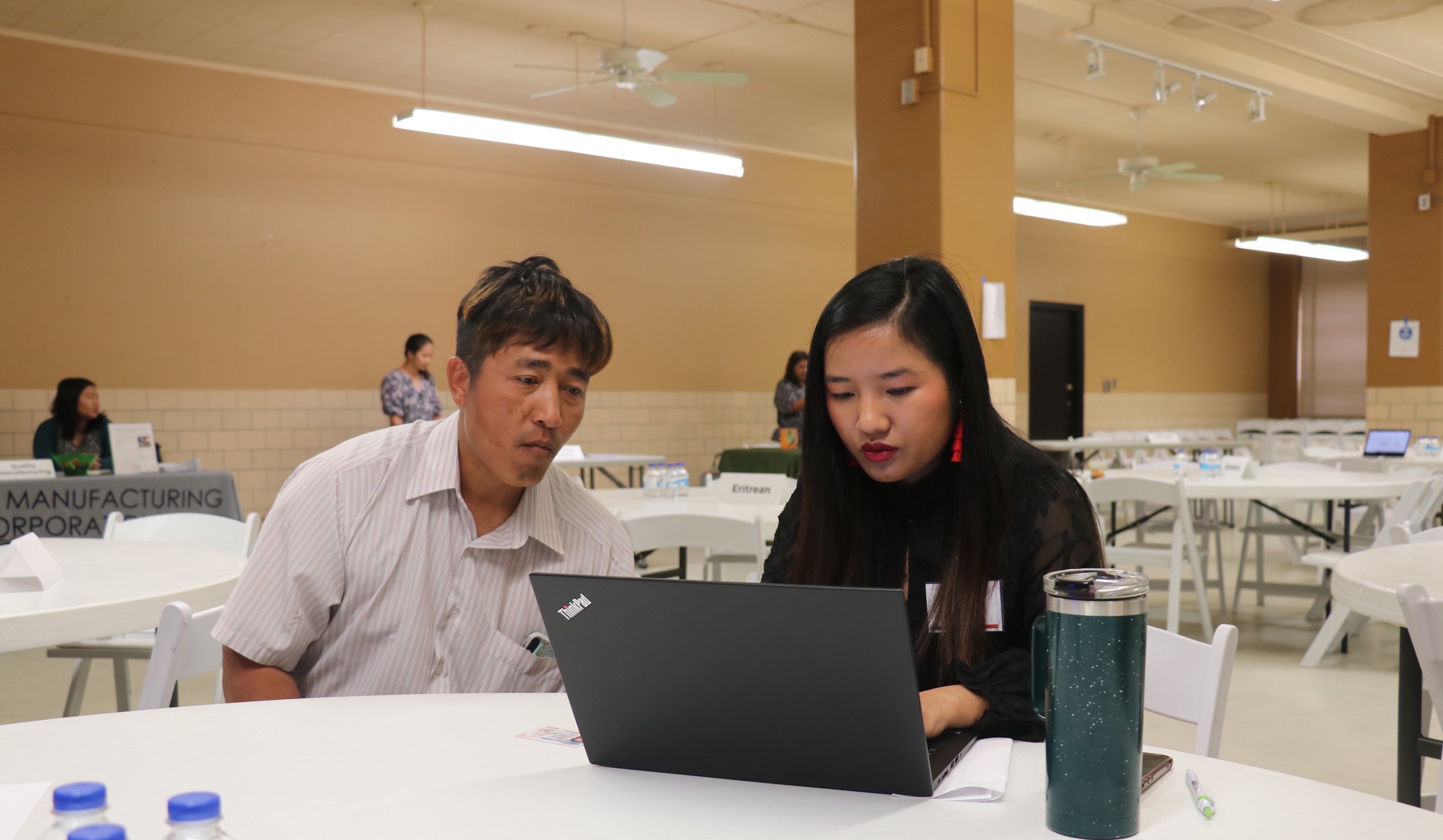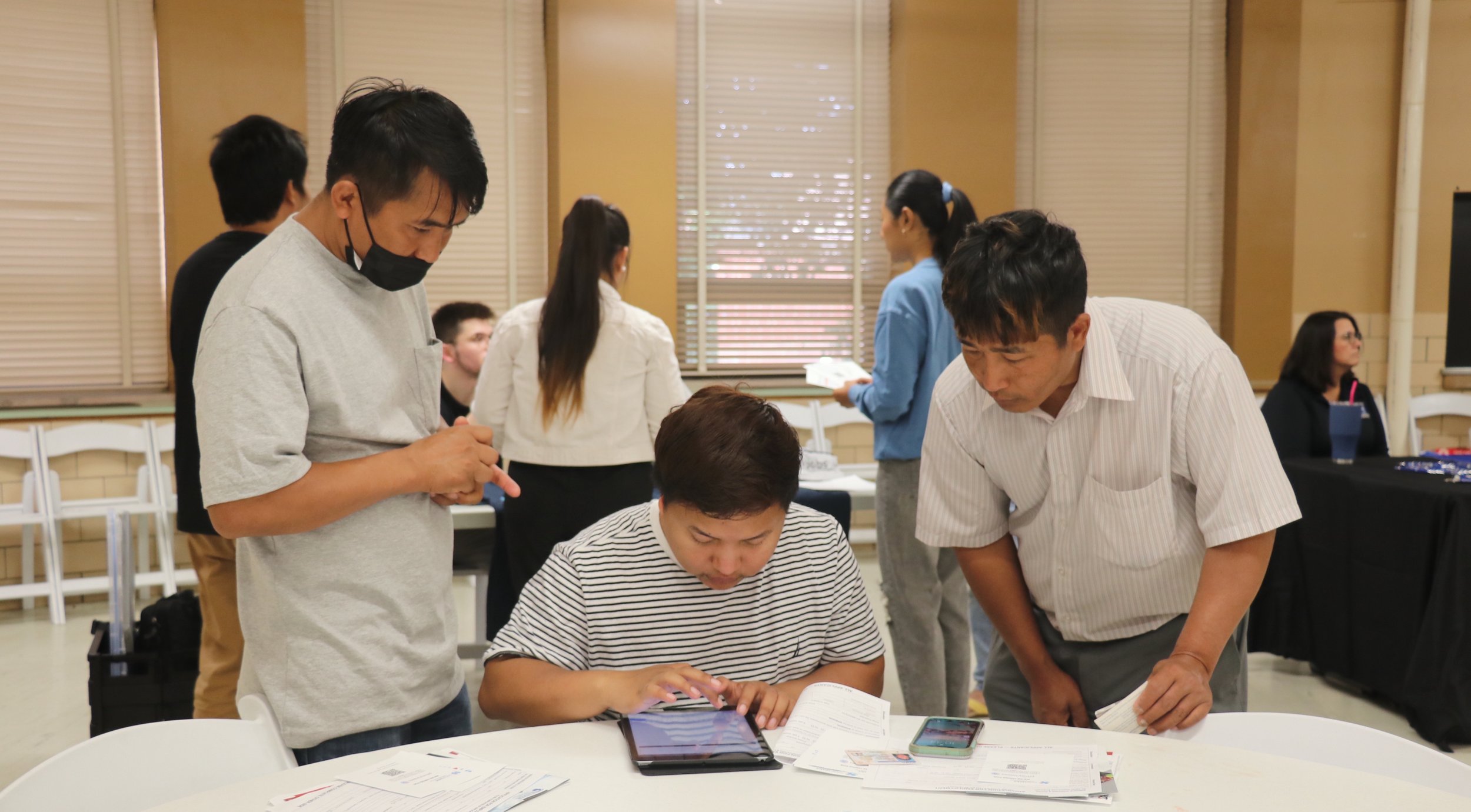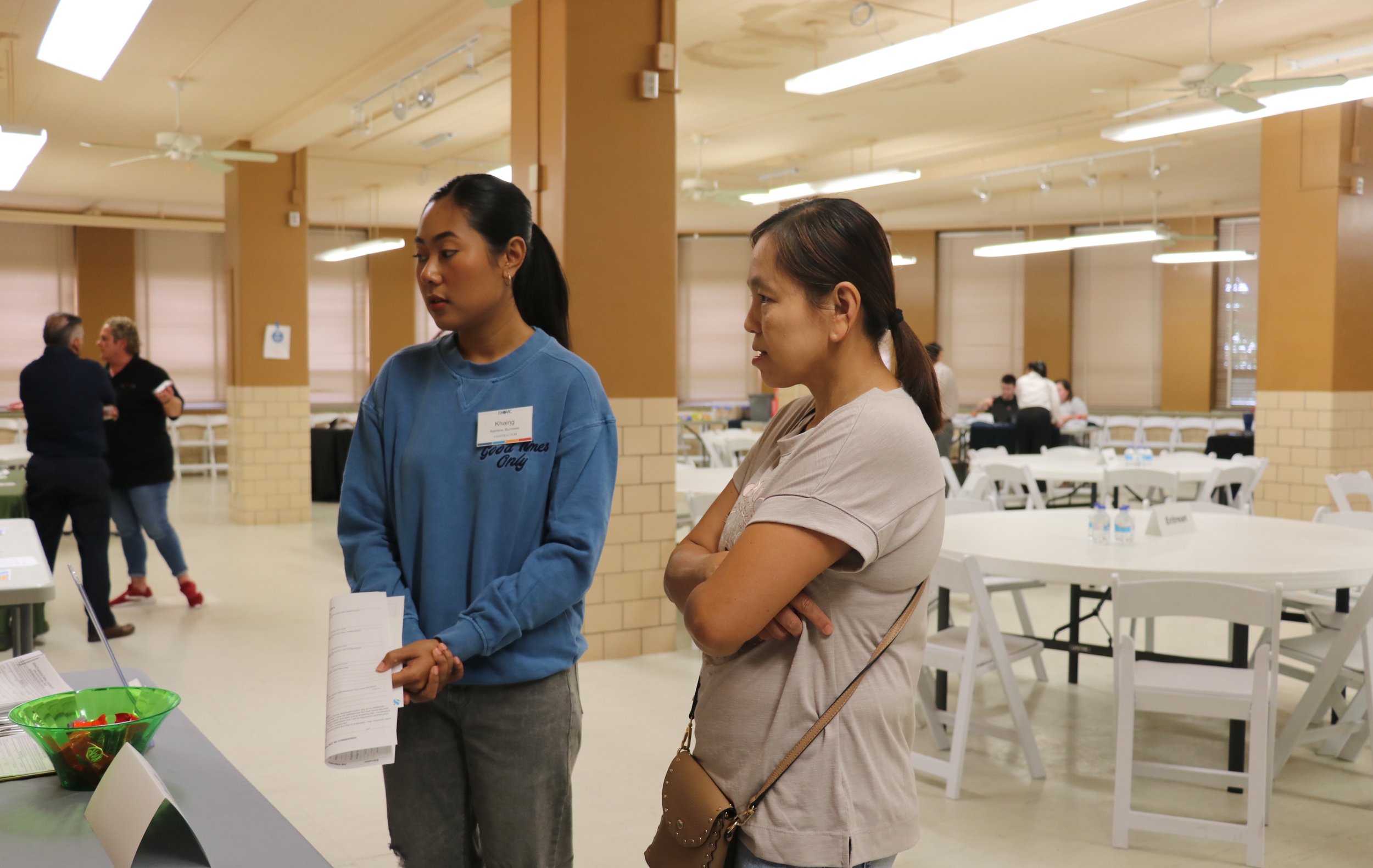EMBARC Job Fairs: Breaking Barriers to Employment
Finding employment can be a hurdle to success for many immigrants and refugees. Transportation barriers, language barriers, and physical limitations can make getting a job feel like a daunting task.
In April and June of 2022, EMBARC teamed up with Latinx Immigrants of Iowa and Project Iowa to host two job fairs in hopes of providing employment opportunities catered to the needs of the community.
RISE AmeriCorps member Pray Meh connected the Karenni community to both job fairs by speaking at events and posting flyers around the neighborhood. Meh said that these events are important for her community because many of them don’t speak English and have trouble connecting with employers on their own.
“If EMBARC opens a job fair, it's very helpful for the community who is looking for jobs,” Meh said.
EMBARC Education Coordinator Nolan Wright was part of the team that helped pull both events together. It is important to him that clients are able to find jobs that allow them to be financially independent while feeling a sense of purpose.
“Getting a client a job and giving them the ability,at least in the short term and for the foreseeable future, to be self-sustaining, it solves so many problems,” Wright said. “It does so much to make sure that they can take care of themselves. It’s also what most clients want far more than any immediate solution.”
The April job fair focused on employers with jobs in manufacturing, logistics, technology, food production and through staffing agencies. Bringing in 14 employers, attendees were able to meet with many potential employers to see what jobs fit their needs. Some employers even interviewed people during the event and offered them a job on the spot. Out of 54 attendees, 25 people gained employment. However, these physically demanding jobs were not accommodating to women and older people in attendance.
For the June event, EMBARC focused more on clients’ specific needs in hopes of minimizing any barriers to employment.
“We went smaller in every way, and we did a lot more quality over quantity,” Wright said.
With only nine employers and about half the attendance, June’s job fair still managed to pack a punch. Employers provided opportunities for everyone, including jobs that were less physically demanding, accommodated transportation needs, and had different shifts that worked with people’s unique schedules. Out of 28 attendees, 15 have gotten jobs so far.
“The people who we knew would be the most looking for jobs ended up being really well-catered by this event,” Wright said.
A major success coming out of the June event was providing two unhoused clients with jobs and shelter. Both clients had lost their permanent resident cards, making it nearly impossible to find employment. EMBARC had photos of the original documents, and found a staffing agency that would accept them. The staffing agency connected them with employers, and EMBARC provided interpreters to facilitate orientation, Navigators to schedule appointments, and RISE AmeriCorps members to follow up with clients.
“A lot of people had to come together to make that happen,” Wright said. “That’s really something that everybody you saw on that Friday in June deserves credit for.”
After the second event, EMBARC realized that there was a need for follow-up beyond a phone call. The solution was to create a coaching plan to support everyone who got a job, not just the clients with an explicit need. The plan was for RISE AmeriCorps members to call each client at least three times specifically about the job fair.
“We didn’t really realize just how much more we could be doing and how much more clients really needed,” Wright said.
The EMBARC staff started to notice questions coming in from clients at every stage of the employment process. From submitting an application to starting work, there is so much a person needs at the beginning of a new job. Some clients realized a job wasn’t a good fit for them after applying. EMBARC staff did everything they could to get them back on track in a new role.
“Once they come in through the door of our cafeteria, we’re a little beholden to them,” Wright said. “If somebody starts a job that they can’t stand and leaves after two weeks, then we haven’t really done our job.”
Meh said the Karenni community is overall happy with their jobs so far. She is happy that her clients were successful in getting jobs they enjoy.
“I heard feedback from my community that they love their jobs,” Meh said. “I feel so excited for my clients.”
Future events will take into account shift hours, physical requirements, and other factors prioritized by community members. For now, EMBARC’s Workforce program is focusing on individual support for their clients, making sure each one feels supported and secure in their employment.
“I want to make sure that our clients are able to participate in the world and be their own support,” Wright said.
Story by Taylor Thomas, RISE AmeriCorps Member



